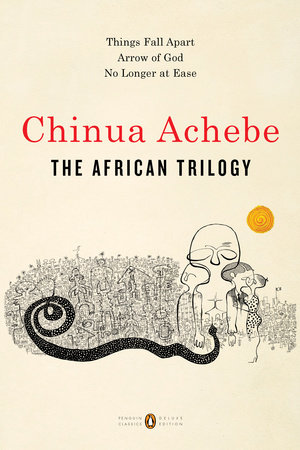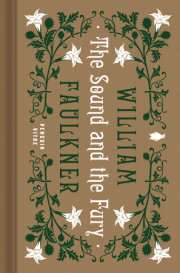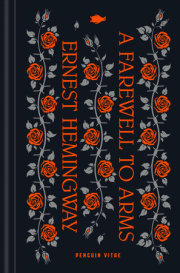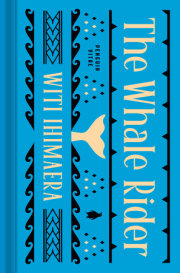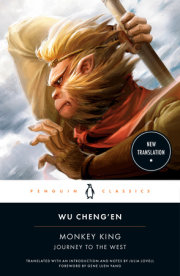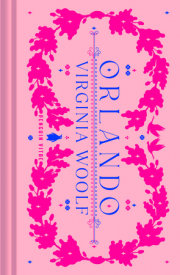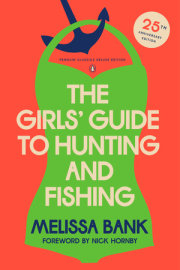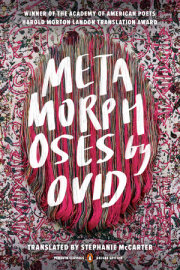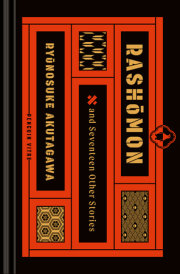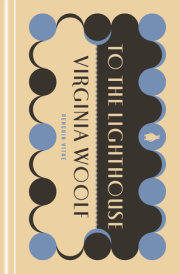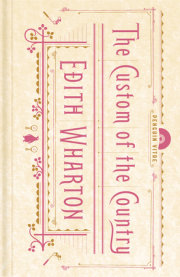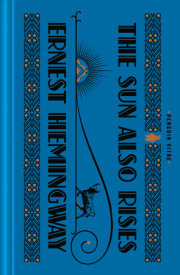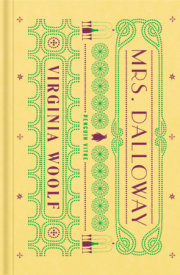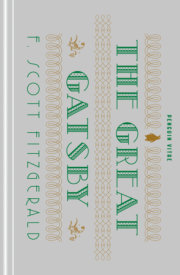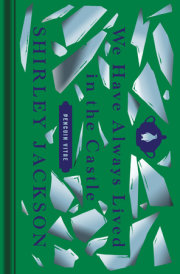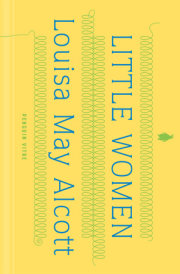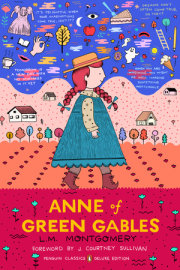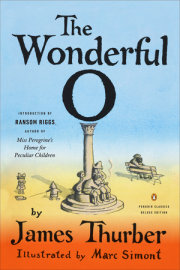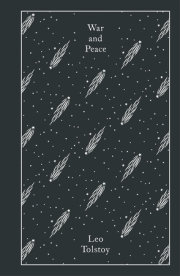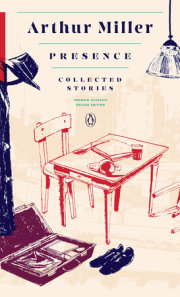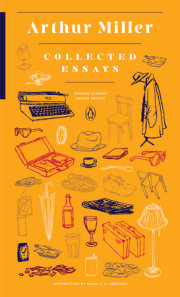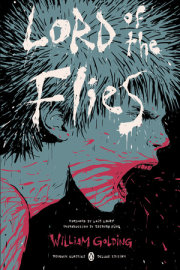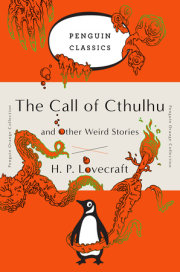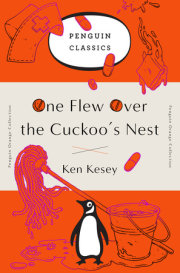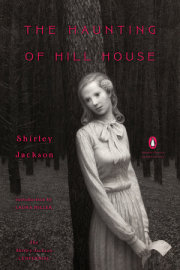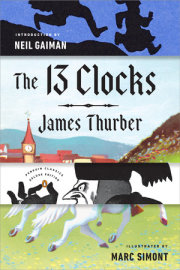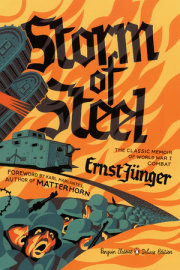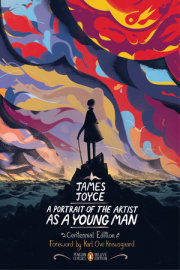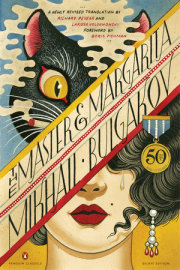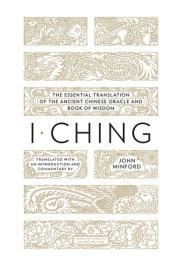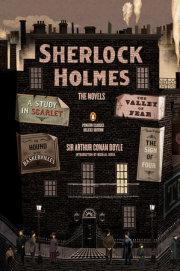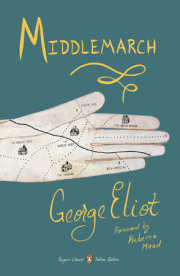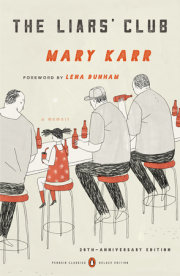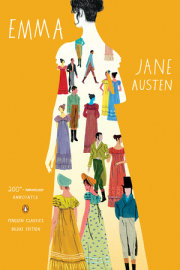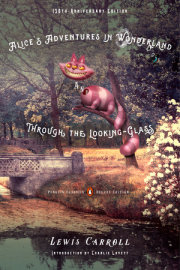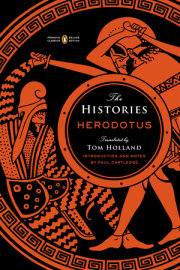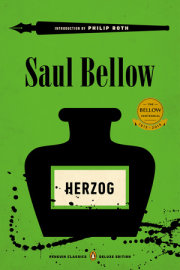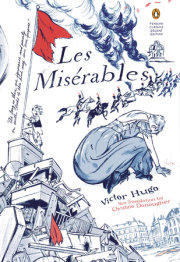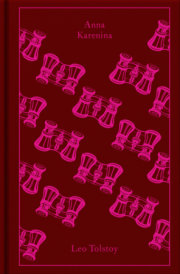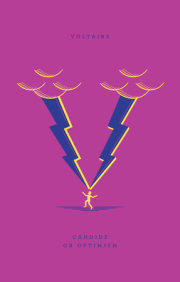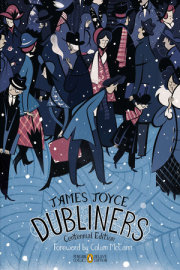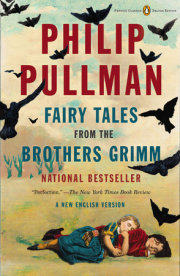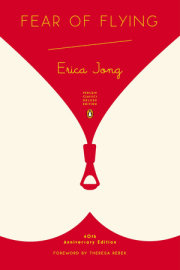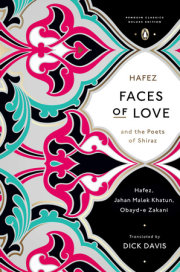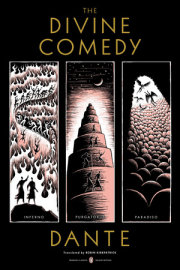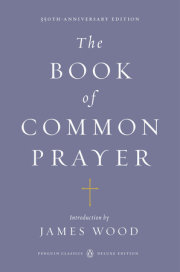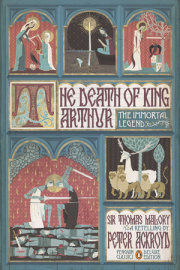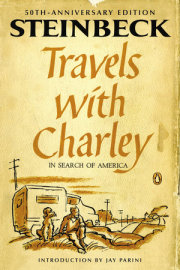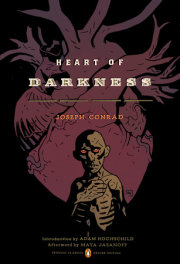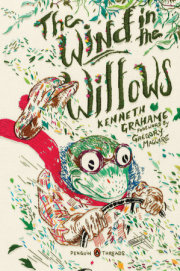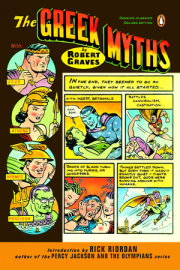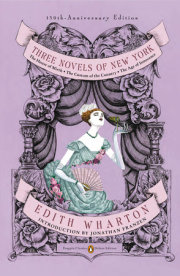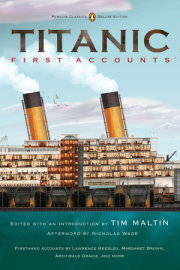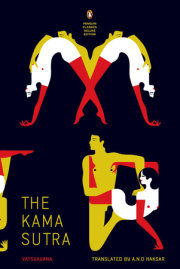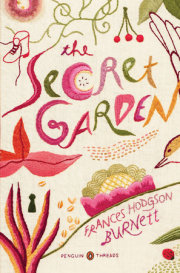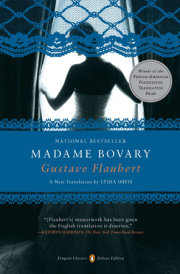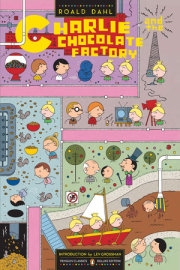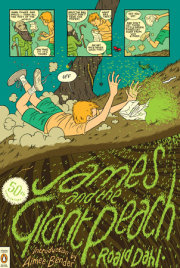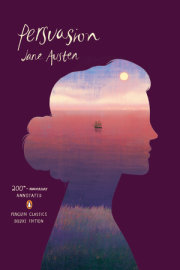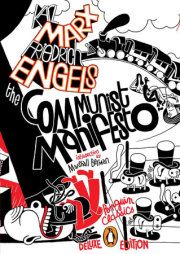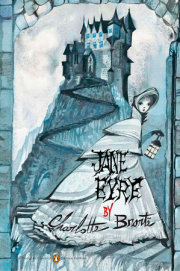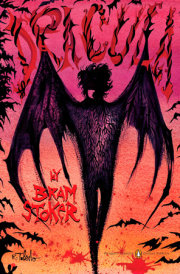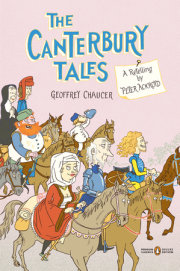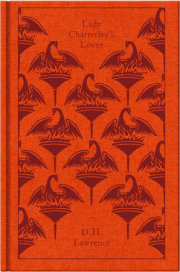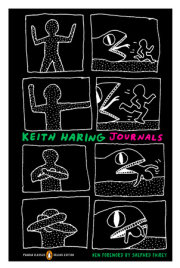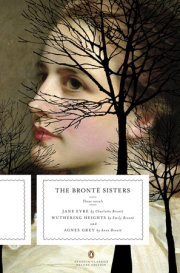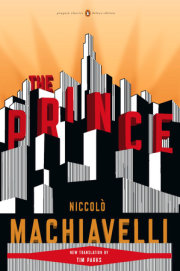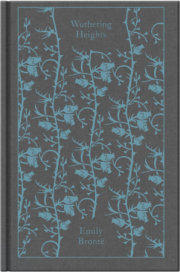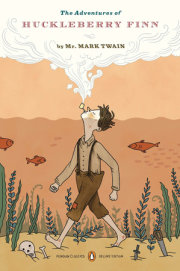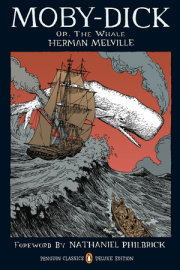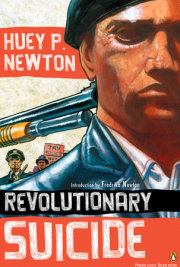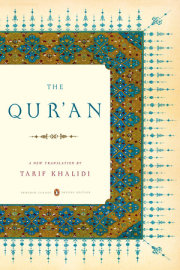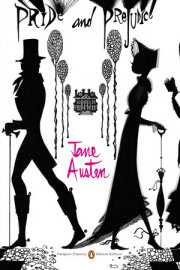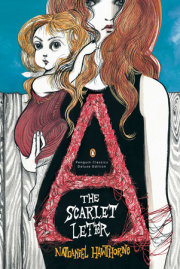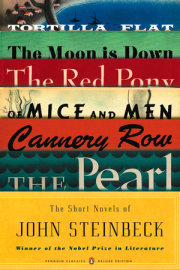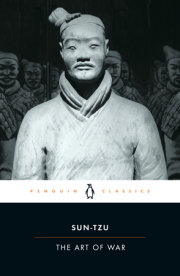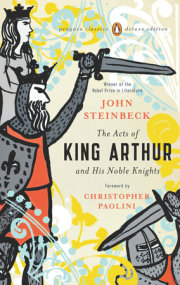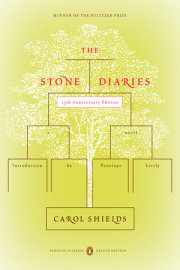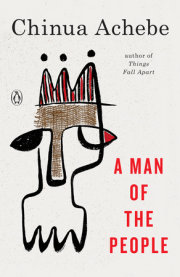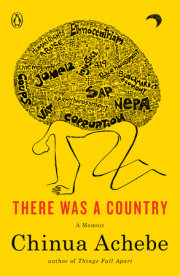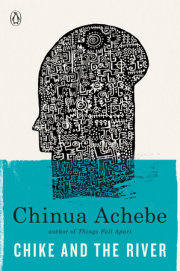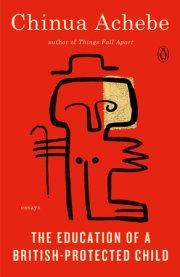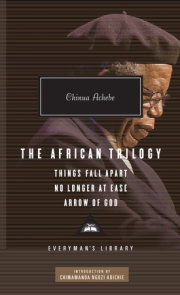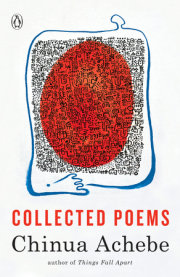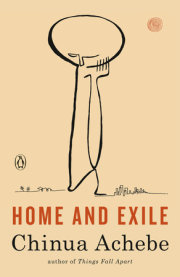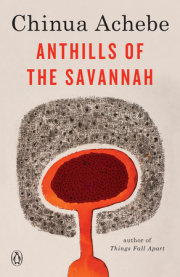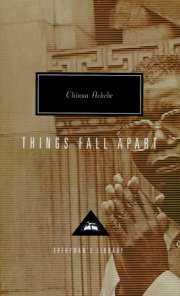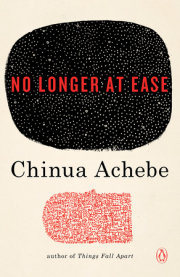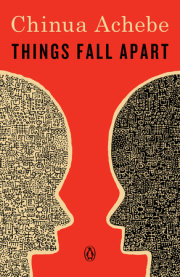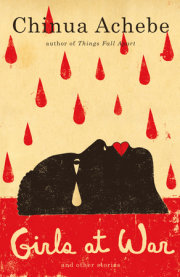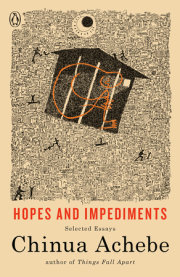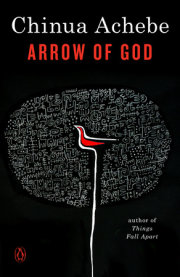Chinua Achebe is considered the father of modern African literature, the writer who "opened the magic casements of African fiction." The African Trilogy--comprised of Things Fall Apart, Arrow of God, and No Longer at Ease--is his magnum opus. In these masterly novels, Achebe brilliantly imagines the lives of three generations of an African community as their world is upended by the forces of colonialism from the first arrival of the British to the waning days of empire.
The trilogy opens with the groundbreaking Things Fall Apart, the tale of Okonkwo, a hero in his village, whose clashes with missionaries--coupled with his own tragic pride--lead to his fall from grace. Arrow of God takes up the ongoing conflict between continuity and change as Ezeulu, the headstrong chief priest, finds his authority is under threat from rivals and colonial functionaries. But he believes himself to be untouchable and is determined to lead his people, even if it is towards their own destruction. Finally, in No Longer at Ease, Okonkwo's grandson, educated in England, returns to a civil-service job in Lagos, only to see his morality erode as he clings to his membership in the ruling elite.
Drawing on the traditional Igbo tales of Achebe's youth, The African Trilogy is a literary landmark, a mythic and universal tale of modern Africa. As Toni Morrison wrote, "African literature is incomplete and unthinkable without the works of Chinua Achebe. For passion, intellect and crystalline prose, he is unsurpassed."
The trilogy opens with the groundbreaking Things Fall Apart, the tale of Okonkwo, a hero in his village, whose clashes with missionaries--coupled with his own tragic pride--lead to his fall from grace. Arrow of God takes up the ongoing conflict between continuity and change as Ezeulu, the headstrong chief priest, finds his authority is under threat from rivals and colonial functionaries. But he believes himself to be untouchable and is determined to lead his people, even if it is towards their own destruction. Finally, in No Longer at Ease, Okonkwo's grandson, educated in England, returns to a civil-service job in Lagos, only to see his morality erode as he clings to his membership in the ruling elite.
Drawing on the traditional Igbo tales of Achebe's youth, The African Trilogy is a literary landmark, a mythic and universal tale of modern Africa. As Toni Morrison wrote, "African literature is incomplete and unthinkable without the works of Chinua Achebe. For passion, intellect and crystalline prose, he is unsurpassed."
Praise for Chinua Achebe
“A magical writer—one of the greatest of the twentieth century.” —Margaret Atwood
“African literature is incomplete and unthinkable without the works of Chinua Achebe.” —Toni Morrison
“Chinua Achebe is gloriously gifted with the magic of an ebullient, generous, great talent.” —Nadine Gordimer
“Achebe’s influence should go on and on . . . teaching and reminding that all humankind is one.” —The Nation
“The father of African literature in the English language and undoubtedly one of the most important writers of the second half of the twentieth century.” —Caryl Phillips, The Observer
“We are indebted to Achebe for reminding us that art has social and moral dimension—a truth often obscured.” —Chicago Tribune
“He is one of the few writers of our time who has touched us with a code of values that will never be ironic.” —Michael Ondaatje
“For so many readers around the world, it is Chinua Achebe who opened up the magic casements of African fiction.” —Kwame Anthony Appiah
“[Achebe] is one of world literature’s great humane voices.” —Times Literary Supplement
“Achebe is one of the most distinguished artists to emerge from the West African cultural renaissance of the post-war world.” —The Sunday Times (London)
“[Achebe is] a powerful voice for cultural decolonization.” —The Village Voice
“Chinua Achebe has shown that a mind that observes clearly but feels deeply enough to afford laughter may be more wise than all the politicians and journalists.” —Time
“The power and majesty of Chinua Achebe’s work has, literally, opened the world to generations of readers. He is an ambassador of art, and a profound recorder of the human condition.” —Michael Dorris
“A magical writer—one of the greatest of the twentieth century.” —Margaret Atwood
“African literature is incomplete and unthinkable without the works of Chinua Achebe.” —Toni Morrison
“Chinua Achebe is gloriously gifted with the magic of an ebullient, generous, great talent.” —Nadine Gordimer
“Achebe’s influence should go on and on . . . teaching and reminding that all humankind is one.” —The Nation
“The father of African literature in the English language and undoubtedly one of the most important writers of the second half of the twentieth century.” —Caryl Phillips, The Observer
“We are indebted to Achebe for reminding us that art has social and moral dimension—a truth often obscured.” —Chicago Tribune
“He is one of the few writers of our time who has touched us with a code of values that will never be ironic.” —Michael Ondaatje
“For so many readers around the world, it is Chinua Achebe who opened up the magic casements of African fiction.” —Kwame Anthony Appiah
“[Achebe] is one of world literature’s great humane voices.” —Times Literary Supplement
“Achebe is one of the most distinguished artists to emerge from the West African cultural renaissance of the post-war world.” —The Sunday Times (London)
“[Achebe is] a powerful voice for cultural decolonization.” —The Village Voice
“Chinua Achebe has shown that a mind that observes clearly but feels deeply enough to afford laughter may be more wise than all the politicians and journalists.” —Time
“The power and majesty of Chinua Achebe’s work has, literally, opened the world to generations of readers. He is an ambassador of art, and a profound recorder of the human condition.” —Michael Dorris
About
Chinua Achebe is considered the father of modern African literature, the writer who "opened the magic casements of African fiction." The African Trilogy--comprised of Things Fall Apart, Arrow of God, and No Longer at Ease--is his magnum opus. In these masterly novels, Achebe brilliantly imagines the lives of three generations of an African community as their world is upended by the forces of colonialism from the first arrival of the British to the waning days of empire.
The trilogy opens with the groundbreaking Things Fall Apart, the tale of Okonkwo, a hero in his village, whose clashes with missionaries--coupled with his own tragic pride--lead to his fall from grace. Arrow of God takes up the ongoing conflict between continuity and change as Ezeulu, the headstrong chief priest, finds his authority is under threat from rivals and colonial functionaries. But he believes himself to be untouchable and is determined to lead his people, even if it is towards their own destruction. Finally, in No Longer at Ease, Okonkwo's grandson, educated in England, returns to a civil-service job in Lagos, only to see his morality erode as he clings to his membership in the ruling elite.
Drawing on the traditional Igbo tales of Achebe's youth, The African Trilogy is a literary landmark, a mythic and universal tale of modern Africa. As Toni Morrison wrote, "African literature is incomplete and unthinkable without the works of Chinua Achebe. For passion, intellect and crystalline prose, he is unsurpassed."
The trilogy opens with the groundbreaking Things Fall Apart, the tale of Okonkwo, a hero in his village, whose clashes with missionaries--coupled with his own tragic pride--lead to his fall from grace. Arrow of God takes up the ongoing conflict between continuity and change as Ezeulu, the headstrong chief priest, finds his authority is under threat from rivals and colonial functionaries. But he believes himself to be untouchable and is determined to lead his people, even if it is towards their own destruction. Finally, in No Longer at Ease, Okonkwo's grandson, educated in England, returns to a civil-service job in Lagos, only to see his morality erode as he clings to his membership in the ruling elite.
Drawing on the traditional Igbo tales of Achebe's youth, The African Trilogy is a literary landmark, a mythic and universal tale of modern Africa. As Toni Morrison wrote, "African literature is incomplete and unthinkable without the works of Chinua Achebe. For passion, intellect and crystalline prose, he is unsurpassed."
Praise
Praise for Chinua Achebe
“A magical writer—one of the greatest of the twentieth century.” —Margaret Atwood
“African literature is incomplete and unthinkable without the works of Chinua Achebe.” —Toni Morrison
“Chinua Achebe is gloriously gifted with the magic of an ebullient, generous, great talent.” —Nadine Gordimer
“Achebe’s influence should go on and on . . . teaching and reminding that all humankind is one.” —The Nation
“The father of African literature in the English language and undoubtedly one of the most important writers of the second half of the twentieth century.” —Caryl Phillips, The Observer
“We are indebted to Achebe for reminding us that art has social and moral dimension—a truth often obscured.” —Chicago Tribune
“He is one of the few writers of our time who has touched us with a code of values that will never be ironic.” —Michael Ondaatje
“For so many readers around the world, it is Chinua Achebe who opened up the magic casements of African fiction.” —Kwame Anthony Appiah
“[Achebe] is one of world literature’s great humane voices.” —Times Literary Supplement
“Achebe is one of the most distinguished artists to emerge from the West African cultural renaissance of the post-war world.” —The Sunday Times (London)
“[Achebe is] a powerful voice for cultural decolonization.” —The Village Voice
“Chinua Achebe has shown that a mind that observes clearly but feels deeply enough to afford laughter may be more wise than all the politicians and journalists.” —Time
“The power and majesty of Chinua Achebe’s work has, literally, opened the world to generations of readers. He is an ambassador of art, and a profound recorder of the human condition.” —Michael Dorris
“A magical writer—one of the greatest of the twentieth century.” —Margaret Atwood
“African literature is incomplete and unthinkable without the works of Chinua Achebe.” —Toni Morrison
“Chinua Achebe is gloriously gifted with the magic of an ebullient, generous, great talent.” —Nadine Gordimer
“Achebe’s influence should go on and on . . . teaching and reminding that all humankind is one.” —The Nation
“The father of African literature in the English language and undoubtedly one of the most important writers of the second half of the twentieth century.” —Caryl Phillips, The Observer
“We are indebted to Achebe for reminding us that art has social and moral dimension—a truth often obscured.” —Chicago Tribune
“He is one of the few writers of our time who has touched us with a code of values that will never be ironic.” —Michael Ondaatje
“For so many readers around the world, it is Chinua Achebe who opened up the magic casements of African fiction.” —Kwame Anthony Appiah
“[Achebe] is one of world literature’s great humane voices.” —Times Literary Supplement
“Achebe is one of the most distinguished artists to emerge from the West African cultural renaissance of the post-war world.” —The Sunday Times (London)
“[Achebe is] a powerful voice for cultural decolonization.” —The Village Voice
“Chinua Achebe has shown that a mind that observes clearly but feels deeply enough to afford laughter may be more wise than all the politicians and journalists.” —Time
“The power and majesty of Chinua Achebe’s work has, literally, opened the world to generations of readers. He is an ambassador of art, and a profound recorder of the human condition.” —Michael Dorris
Author
Back to Top
Notifications






